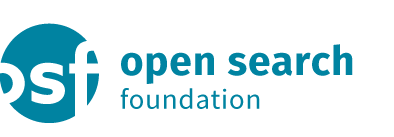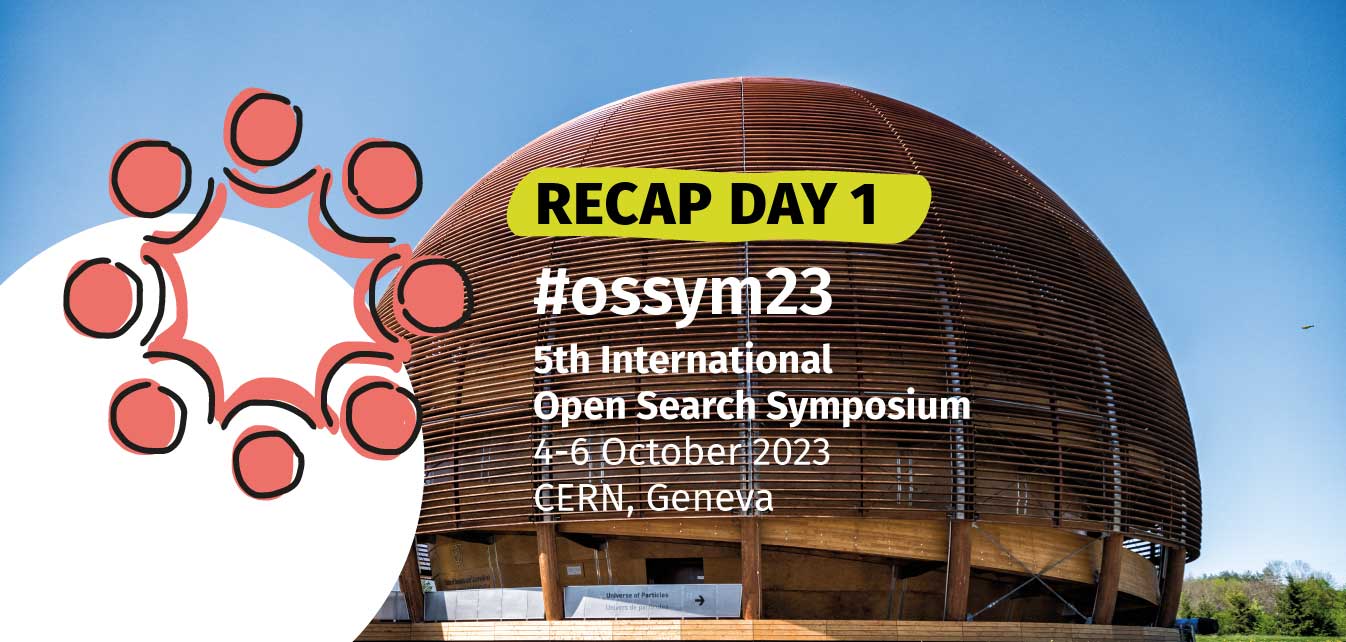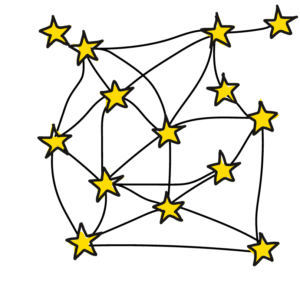5. Symposium on Open Web Search – #ossym23 Recap
For the 5th time Researchers, Tech experts, Political Representatives as well as Industry Executives came together to discuss about the foundations of a human-centric, transparent and open internet with solid grounds in Europe and beyond.
The Open Search Symposium 2023 was hosted at CERN in Geneva from 4 to 6 October welcoming round about 100 participants both online and in person.
Day 1 in a nutshell
Day one of #ossym23 was filled with insightful talks surrounding the OpenWebSearch.EU project and its key stakeholders.
Andreas Wagner from CERN and Stefan Voigt from Open Search Foundation opened the 3-day get-together with a look into the 2022 #ossym proceedings (to be found here) as well as a peek into the current multi-disciplinary connected research landscape that allows for collaborative cloud infrastructures across various data centers from all over Europe – thus calling for the development of a European web index.
Keynote presentation on Open AI Culture
In his Keynote presentation about “Democratizing AI through community organizing“ Christoph Schumann of LAION e.V. strongly advocated for an Open AI Community Culture and gave examples of how such an open culture has fostered innovations in the field of AI with impressive speed.
A key take-away was his call for a EU initiative to provide – similar to the electricity infrastructure – a foundation model infrastructure, where one could train future models, that could be fine-tuned to be quality chat bots or even factory or home robots. “It would be beneficial for us all to have a EU wide effort to train these models. Some sort of CERN for AI”, he stated.
Invited Talks by EU commissioner and OWS.EU project lead
Jorge Gasós – in charge of the NGI (Next Generation Internet) initiative of the European Commission (which also funds the OpenWebSearch.EU project) – set the frame for the day’s agenda by introducing the scope of projects funded by NGI, including in the fields of Blockchain Technology, Internet Architecture, Data Protection and more. He explained the general bottom up approach which aims at bringing together Academia, Research and Industries to develop projects collaboratively.
Michael Granitzer from University of Passau gave an update on the current status quo of the OpenWebSearch.eu project, including an outlook regarding the soon to happen Third-Party Partner onboarding process. Third-Party Partners are granted fundings to help evaluate legal, technical and economical potential of the project.
Research Tracks: “OpenWebSearch.eu I” – Research and Updates from the EU Project groups and researchers
Janek Bevendorff from Bauhaus Universität Weimar shared a case study depicting “Product Spam on YouTube” with a close look at click farming strategies for the sake of promoting affiliate links. The study was conducted by him and his colleagues Matti Wiegmann and Benno Stein as well as Martin Potthast from Leipzig University and ScaDS.AI. The case study can be found online here.
Gijs Hendriksen presented the “Challenges of index exchange for search engine operability” with a focus Tokenization, which him, Djoerd Hiemstra, Chris Kamphuis and Arjen P. de Vries from Radboud University had studied in detail.
Maik Fröbe from Friedrich Schiller University Jena talked about “Prototyping Open Web Search Applications with TIRA: A Case Study in Research-oriented Teaching” and shared the results including pros and cons along each step. The Case Study was conducted by him, Theresa Elstner and Harrisen Scells from Leipzig University, as well as Martin Potthast from Leipzig University and ScaDS.AI together with Benno Stein from Bauhaus-Universität Weimar
Research Tracks: “OpenWebSearch.eu II” – Research and Updates from the EU Project groups and researchers
The afternoon research tracks included both a presentation of “A Comprehensive Dataset for Webpage Classification” and “OWLer: Preliminary results for building a Collaborative Open Web Crawler” by Michael Dinzinger, Saber Zerhoudi, Michael Granitzer, Mohammed Al-Maamari, Mahmoud Istaiti and Jelena Mitrovic from University of Passau with the impressive takeaway that “OWLer” had fetched around 120m web documents in the preceding four weeks – 93% of them successful fetches.
Together with Ines Zech Leipzig, the audience was also invited to take a look into “Commercialized Generative AI: A Critical Study of the Feasibility and Ethics of Generating Native Advertising Using Large Language Models in Conversational Web Search”. The study was conducted and presented by Ines Zelch Leipzig and Matthias Hagen – both from Friedrich-Schiller-University in Jena together with Martin Potthas from Leipzig University and ScaDS.AI. It showed that subltle advertising can easily be woven into organic copy, depending on the prompts given to well-known AI chat bots.
Jasmin Tietgen from Open Search Foundation in Starnberg and Maari Alanko from CSC – IT Center for Science in Finland introduced a suggested “Governance Towards an Open Web Index” taking into account a multitude of ethical, legal, societal, cultural, economic, ecological and awareness dimensions.
Alexander Nussbaumer, Sebastian Gürtl and Christian Gütl, as well as Rohit Kaushik from Graz University of Technology together with G. Hendriksen from Radboud University in the Netherlands had examined a “Conceptual Design and Implementation of a Prototype Search Application using the Open Web Search Index” giving an example of a sightseeing application and inviting participants to develop their very own search application. The presentation was delivered by Alexander Nussbaumer.
Day one was closed with a look at “Cooperating via Open Console” by Mark Overmeer from MARKOV Solutions in The Netherlands. The idea is to allow for improved quality of website information by sharing knowledge about websites and domain names via public moderation.
The day’s agenda was complemented by a social networking event in the evening which included further intriguing discussions and a perfect atmosphere to wind down.
Stick around for a recap of Day 2.


